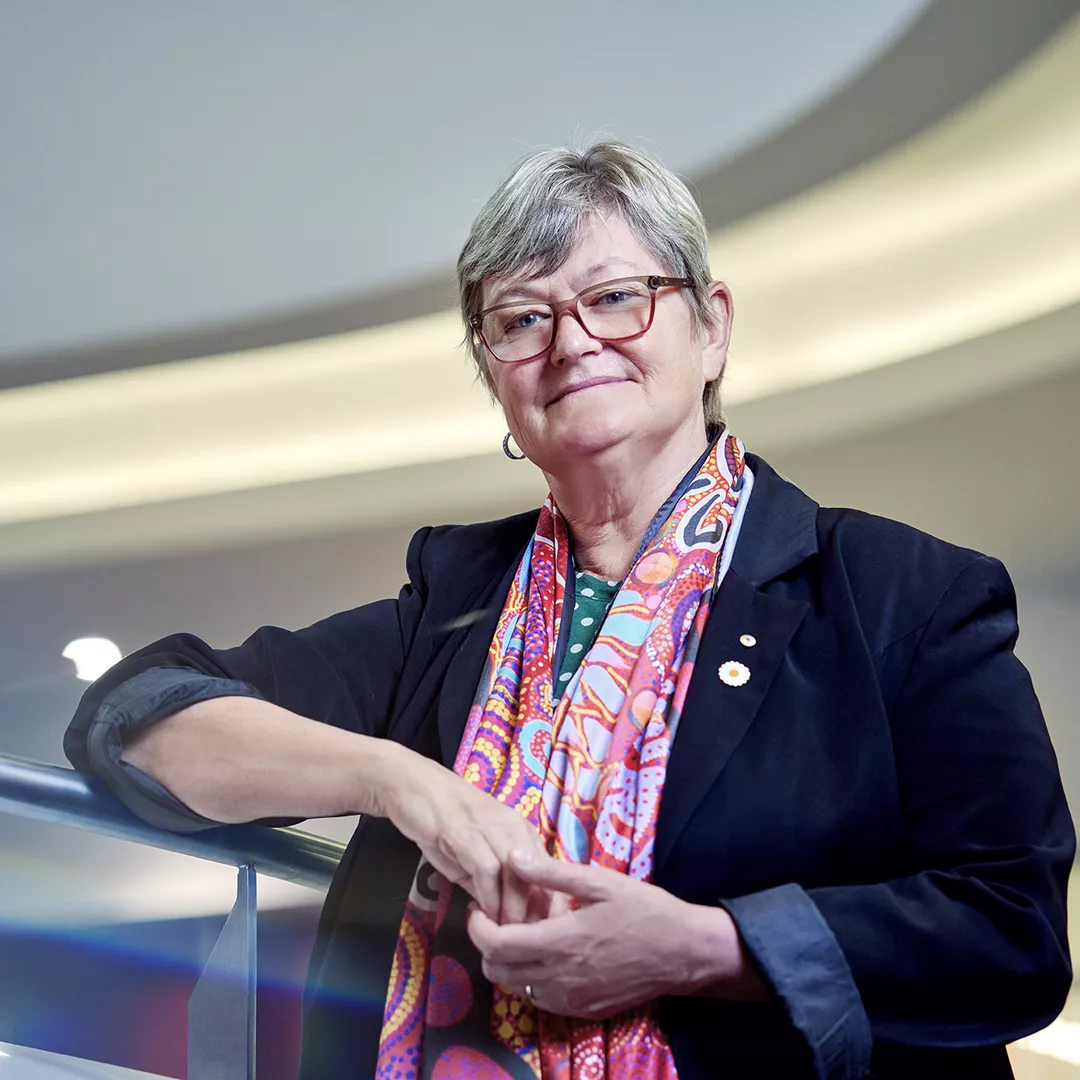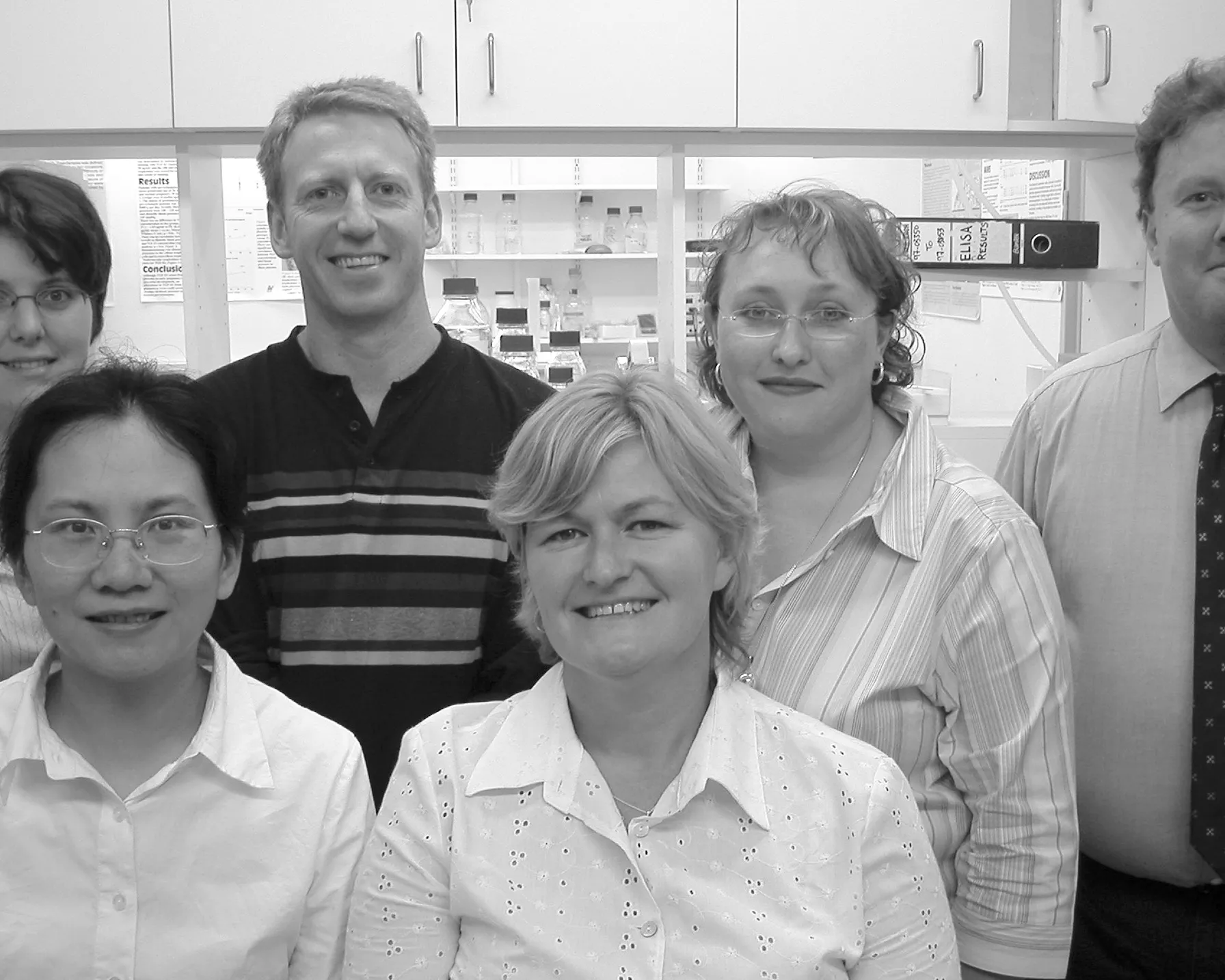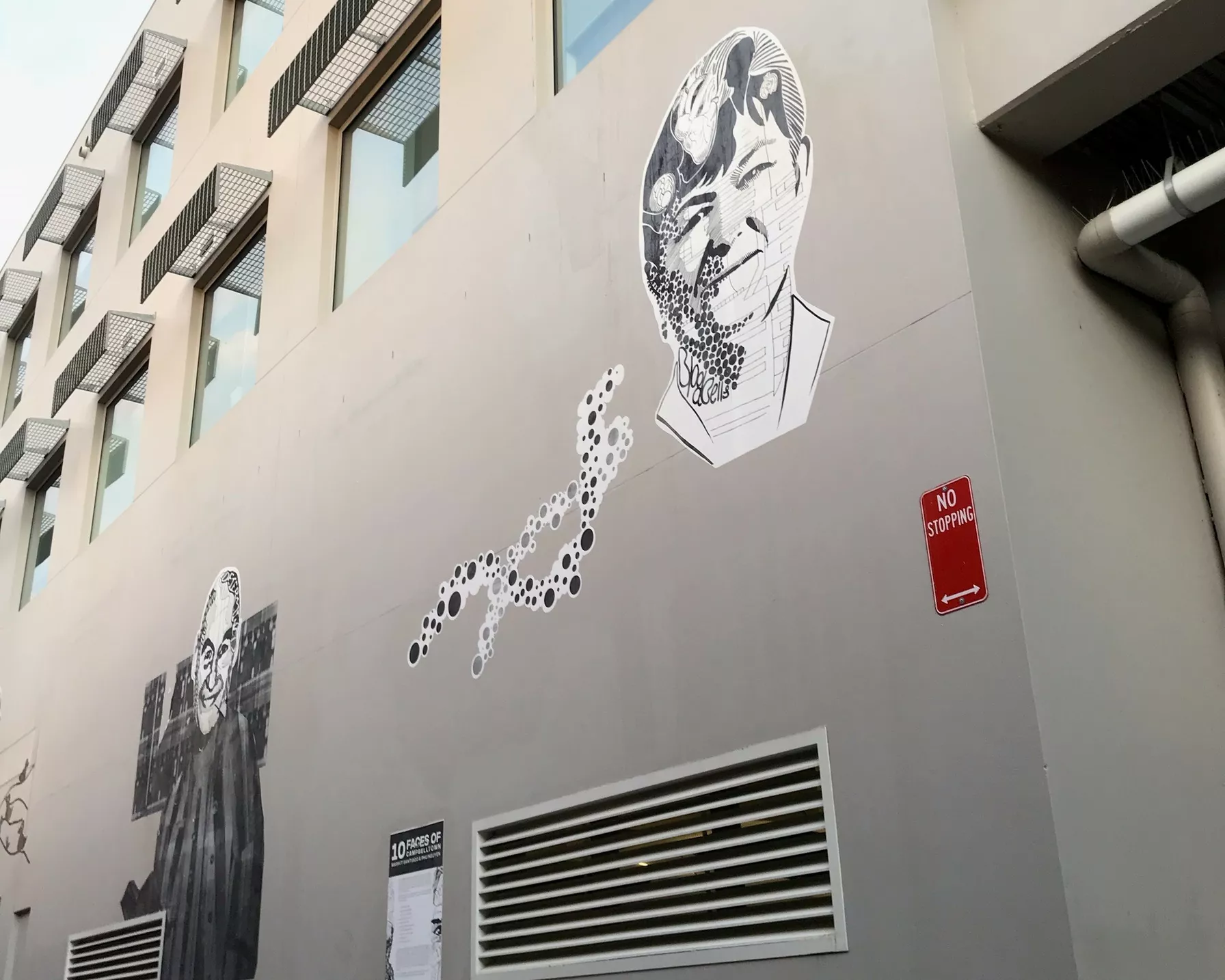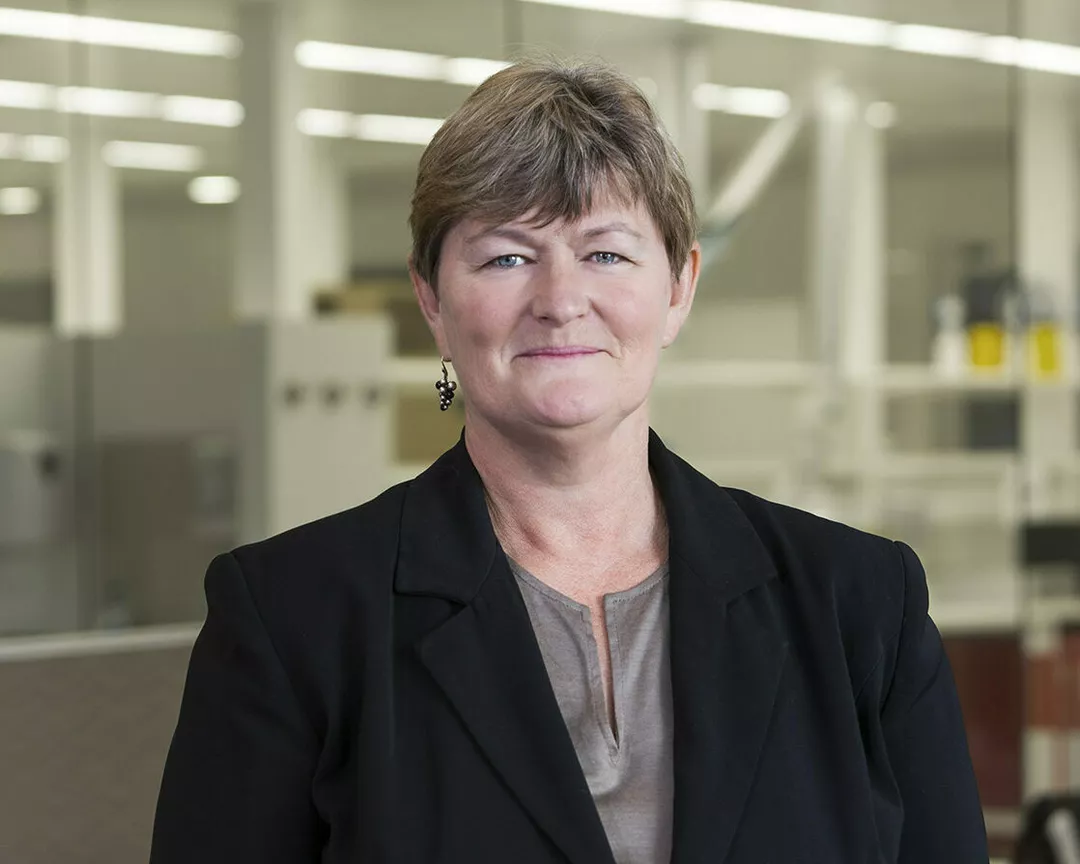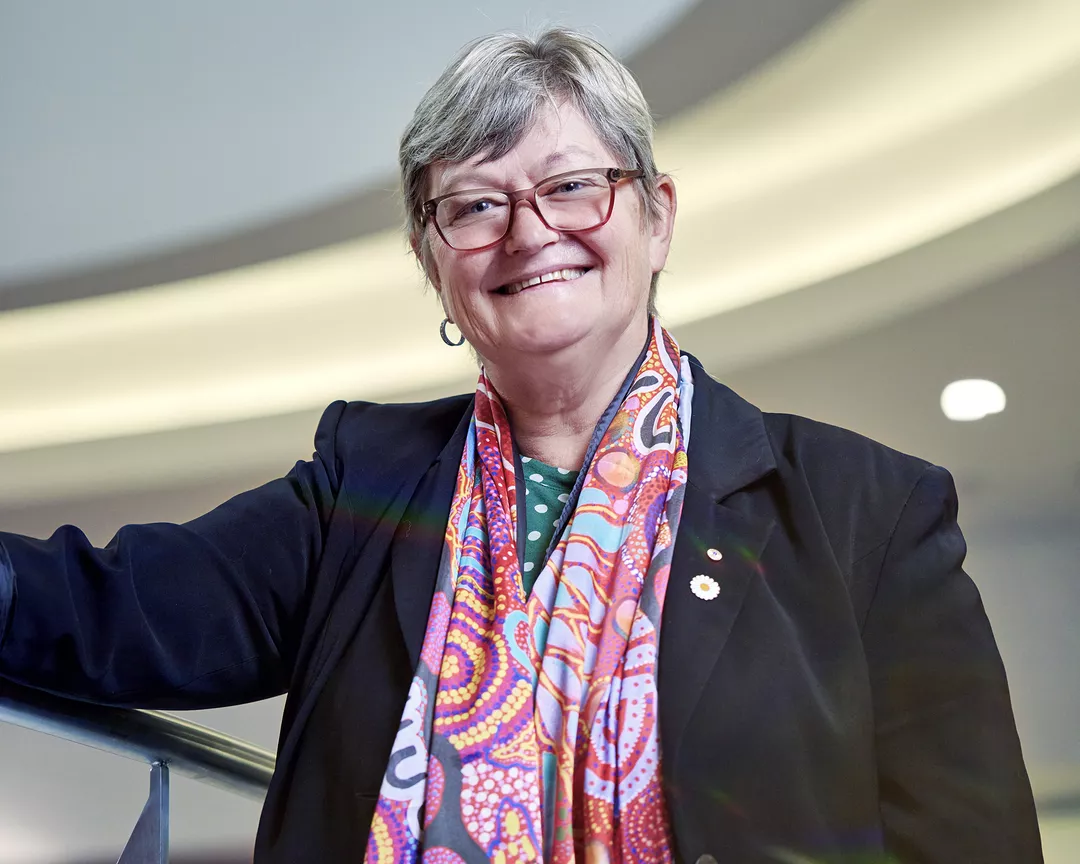In a testament to her passion for improving the lives of women with cardiovascular disease, Distinguished Professor Annemarie Hennessy AM is celebrating 20 years at the Heart Research Institute (HRI) as Vascular Immunology Group Leader this year.
In 2002 and already with 26 peer-reviewed publications, Annemarie joined HRI as an Associate Professor, bringing her placenta research laboratory from The Royal Prince Alfred Hospital to become HRI’s Vascular Immunology Group. Her interest was in the area of blood pressure, particularly in relation to its effects on hormones in women, and her research focus was on understanding the links between pregnancy and later-life cardiovascular disease, and the effects of the pregnancy on the mother’s blood vessels.
Vascular Immunology Group, 2002. L-R: Angela Makris, Bei Xu, Stef Orange, Annemarie Hennessy, Charlene Thornton, Robert Ogle
In the past 20 years, her original team members have blossomed in their careers. Prof Angela Makris, who now co-directs the Vascular Immunology Group and is also Professor at WSU/UNSW and a clinical researcher at Liverpool Hospital, originally joined the Group as a PhD student. Dr Bei Xu, now a senior researcher at the Kolling Research Institute, started as a research assistant with the Group. Dr Stef Orange, now Senior Medical Advisor, Oncology Access Medical Affairs Lead Aus, NZ Medical Lead at MSD Australia & New Zealand, also started his PhD with the Group. Prof Charlene Thornton, now Professor of Nursing Research at Flinders University, was originally a midwife and research assistant with the Group. Dr Robert Ogle became Sydney Local Health District’s Director of Women’s Health, Neonatology and Paediatrics before his passing.
Within 12 months of the Group’s launch, they discovered the placenta was part of the cause of preeclampsia. The team turned their focus to developing ways to measure the functions of the placenta in early pregnancy, in hopes of being able to detect those mothers who are at high risk.
“High blood pressure in pregnancy is a much more worrying condition than the same level of increase outside pregnancy. The mother and baby are highly vulnerable to the effects of the increased blood pressure. It can start in an insidious fashion but often takes off like a bushfire, requiring the baby to be delivered prematurely and the mother to be in the intensive care unit of a major teaching hospital,” Annemarie said at the time.
They discovered the links between blood flow and the toxic response of the placenta. They identified early detection tests for preeclampsia and are researching potential targeted treatments for women with established preeclampsia. They have discovered a number of major abnormalities and deficiencies of the placenta during preeclampsia and have pinpointed the metabolism of aspirin in pregnancy and the role it plays in the prevention of preeclampsia.
Annemarie connected with Amanda Davidson and Geoff Brieger in 2003 to create PEARLS, a women’s action group that provides community engagement and reviews the Vascular Immunology team’s research plans. PEARLS also raises funding for PhD scholarships to support early career researchers in focusing on improving outcomes for women with preeclampsia and on understanding its causes.
Today Annemarie is a Distinguished Professor at Western Sydney University, a highly prestigious honour reserved for those researchers who have international influence and a commitment to excellence. She has over 158 publications and was selected to be in the “10 faces of Campbelltown” city mural, where her face was painted in recognition of her contribution to local education and research.
“10 faces of Campbelltown” city mural featuring Annemarie Hennessy
Annemarie Hennessy in 2006 and today, in 2022
